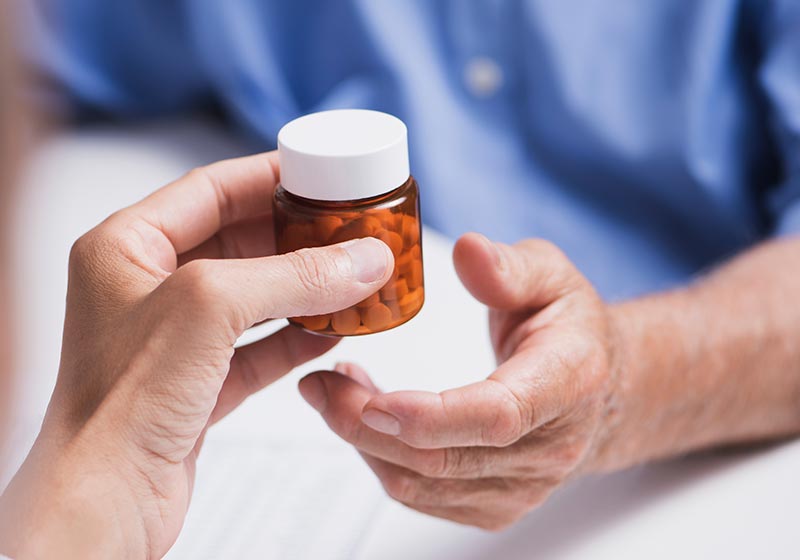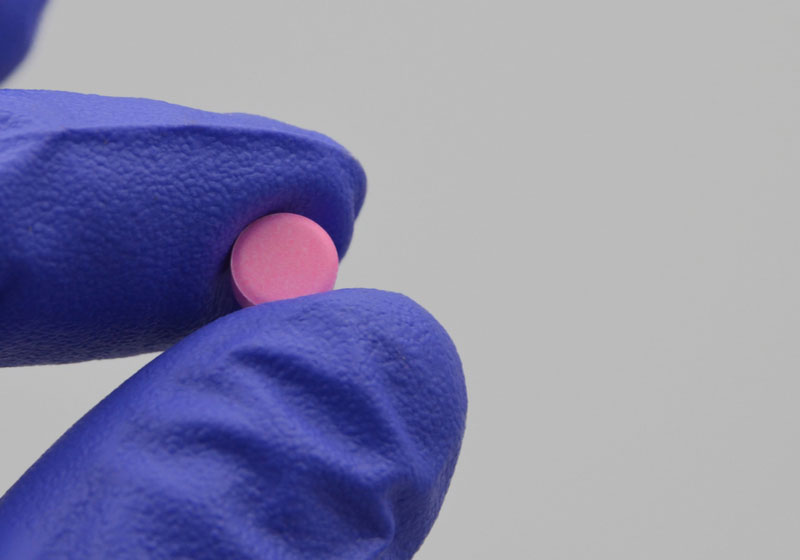More commonly known as Tylenol, Acetaminophen is the go-to drug for instant pain and fever relief, but is Tylenol a blood thinner? Read on to find out.
RELATED: How Long Can You Live With Heart Disease | Congestive Heart Failure Life Expectancy
Is Tylenol a Blood Thinner? 5 Frequently Asked Questions

1. What is Tylenol, and How Does It Work?

Tylenol (generic name: Acetaminophen) is a Non-Steroidal Anti-Inflammatory Drug (NSAIDs). NSAIDs reduce pain and break fevers by reducing inflammation in the body.
Inflammation is the body’s response when an infection or injury happens. It’s a natural response of your immune system, but this response can sometimes leave you in pain and reduce your quality of life.
NSAIDs like Tylenol help you manage these inflammatory symptoms to a more tolerable level. Tylenol stops the creation of prostaglandins, the enzymes that send pain signals, in your central nervous system.
2. What are the Benefits and Drawbacks of Tylenol?

Tylenol causes fewer digestive side effects than other NSAIDs like ibuprofen and safely be taken with an empty stomach.
It works exceptionally well for mild-to-moderate pain in most people, and it’s easy to find in any pharmacy.
Taking too much Tylenol, however, can affect your liver. It’s also easy to take too much acetaminophen, especially if you don’t read medication labels, because it’s added to many other drugs.
3. What are Blood Thinners?

Blood thinners are drugs that can prevent blood clots from forming in people susceptible to developing them.
A blood clot seals wounds and helps them heal, but sometimes it can block blood flow to the heart and brain, leading to heart attacks and strokes.
There are two types of blood thinners:
- Antiplatelets prevent platelets (blood cells that form blood clots) from sticking together. Examples of antiplatelets include aspirin, clopidogrel, and prasugrel.
- Anticoagulants delay blood clots forming and prevent existing ones from getting more significant. Examples of anticoagulants include warfarin, heparin, and apixaban.
Contrary to popular belief, both types of blood thinners don’t thin your blood. They instead inhibit the release of vitamins and enzymes responsible for blood clotting, like Vitamin K.
RELATED: Protect Your Heart with These 13 Natural Blood Thinners
4. Is Tylenol a Blood Thinner?

Unlike aspirin, an NSAID known for its blood-thinning properties, Tylenol isn't a blood thinner. You can find both of them over the counter, but if you need a blood thinner, see your doctor get a prescription for one.
Because taking blood thinners make you more prone to bleeding, only take them as prescribed and make sure to get your regular lab tests done.
Always tell health care providers you’re taking blood thinners as they can interact with certain medications.
5. What Anti-Inflammatory Drug Can I Take with Blood Thinners?

What anti-inflammatory drug you can take with blood thinners depends on the kind you take and what your doctor says.
For most people taking blood thinners, Tylenol is a safer alternative compared to other NSAIDs. It doesn't have as many interactions or side effects when you take them with your blood thinner.
If you are taking a blood thinner, be sure to talk to your doctor before taking a course of painkillers. You can work together to find a safe dose that won't cause many side effects.
Can you take too much Tylenol? Learn more from Dr. Erik Richardson:
Is Tylenol a blood thinner? The short answer is no – Tylenol's good at what it could do (make you feel less sick), but replace your blood thinner prescription it could not.
Still, that doesn’t take away from what it can do when pain or fever strikes, and you need to bounce back as quickly as possible.
It’s one of the safest drugs you can take alongside blood thinners, as long as you take it with a doctor's knowledge and supervision.
Are you taking blood thinners and using Tylenol as your go-to drug for pain and fever relief? Share your experiences in the comments section below!
Up Next:
- Stroke vs Heart Attack | Heart Attack vs Stroke | Difference Between Stroke and Heart Attack
- Using Your Nervous System to Enhance Your Immune System [PODCAST]
- 17 Best Green Juice Recipe for Weight Loss inc Dr. Oz Green Juice Recipes for Weight Loss
Join the healthy living conversation with us on Facebook, Instagram, and Pinterest. We want to hear your story—let’s connect via these channels. Find our community online and join the healthy living revolution today!
Trending
Winter Self-Care Checklist: Quick Comforts for The Cold Weather
Winter Superfoods That Keep You Strong, Healthy, and Gorgeous
Get Updates
SIGN UP FOR OUR NEWSLETTER TODAY

Winter Self-Care Checklist: Quick Comforts for The Cold Weather

7 Grocery Shopping Tips For Making Healthy Choices

Related

Winter Self-Care Checklist: Quick Comforts for The Cold Weather

